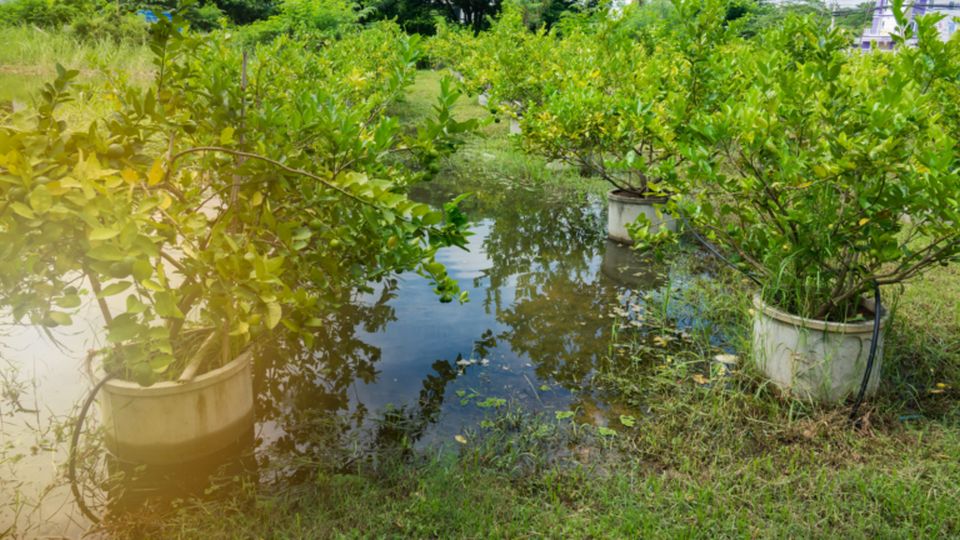
Deadly flash floods have hit eastern Australia, with some areas even affected by 400m of rain in a single day.
Severe weather like this can be especially damaging to our gardens, and experts are advising people to take precaution.
With this in mind, Nick Drewe, homes and interior expert at English website WeThrift.com , has issued five top tips on how to protect your garden amid periods of heavy rainfall.
Create a rain garden
Identify areas of your garden that get waterlogged easily during a storm and create a rain garden in its place. Instead of letting these areas turn into muddy pits, a rain garden can help catch rainwater runoff in a practical and beautiful way.
Your rain garden can incorporate a mix of big and small plants, small trees, flowers, grass and any other elements that you can think of. The more parts you add to your rain garden, the more water they require to grow, therefore decreasing water flooding in your garden.
Collect rainwater
Surface water flooding or water logging is when rainwater is unable to drain away from the grass or other areas of the garden it has fallen onto. This leaves no air spaces in the saturated soil, causing plants and grass to literally drown.
Collecting rainwater in a water butt will help prevent any excess water from pouring onto the grass. Use a rainwater diverter to connect your roofline drainage to the water storing tank. It’s a great way to minimise the impact of heavy rainfall, and the water can be used for plants or even to wash cars. If the water gets too high, simply pour it down the outside drain.
Protect your electrics
If you have outdoor lighting, heaters or even a powered jacuzzi, it’s most likely that you spent a substantial amount of money on your outdoor electrical equipment.
That said, prior to the storm, ensure that these are switched off from the plug and turned off to avoid potential damage and (more importantly) electrocution.
Clear gutters and outside drains
Fallen leaves and other types of debris can build up in gutters and outside drains over time. Without cleaning, overflowing water from gutters during heavy rainfall could wash away soil, destroy flowerbeds and cause waterlogging, as well as water damage to decking.
Climbing onto the roof or standing below the gutter, could be dangerous when trying to clean your drainage system during a storm. Wait until the rain has passed, and if you don’t have the correct equipment, it’s better to call a professional service to take care of it for you.
Protect your plants
If you have any outdoor potted plants lying around, make sure that these are stored away before the weather gets severe.
If you don’t want to store these inside, protect the pots with bubble wrap to prevent them from getting damaged or broken. However, there is a chance that the bubble wrap could dry out the soil. That said, make sure your plants are well hydrated prior to putting the bubble wrap on.
When it comes to your taller outdoor plants, it’s important to note that heavy rain could cause heavy damage to these and even cause them to snap.
A key trick to preventing this is to push a wooden or metal support into the ground and tie your tall plant to it. This will provide your plant with a safety net amidst the wind.





